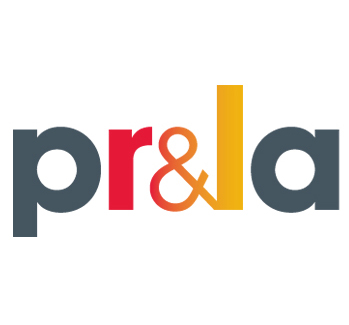Every year, millions of men, women, and children are trafficked worldwide—including right here in the United States (U.S.). It can happen in urban, suburban, and rural communities and victims can be any age, race, gender identity, sex, ethnicity, nationality, immigration status, and socio-economic class.
Throughout the month of January, Blue Campaign will join many organizations and members of the public in recognizing National Slavery and Human Trafficking Prevention Month and National Human Trafficking Awareness Day—January 11. We invite you to start planning now on how you will raise awareness of human trafficking in January, and beyond.
What is Human Trafficking?
Human trafficking involves the use of force, fraud, or coercion to obtain some type of labor or commercial sex act. Causing someone under the age of 18 to engage in a commercial sex act, regardless of using force, fraud, or coercion is human trafficking under U.S. law. Human traffickers use various forms of force, fraud, and coercion to control and exploit victims. These forms include imposing of debt, fraudulent employment opportunities, false promises of love or a better life, psychological coercion, and violence or threats of violence.
The crime of human trafficking hinges on the exploitation of another person. People often falsely believe “human trafficking” implies victims must be moved from one place to another to qualify as a victim. Human trafficking does not require transportation to be considered a crime. It is a crime that can be committed against an individual who has never left their hometown.
Recognizing key indicators of human trafficking is the first step in identifying victims and can help save a life. Every human trafficking situation is different but knowing how to spot it is important.
What is Blue Campaign?
Blue Campaign is a national public awareness campaign designed to educate the public, law enforcement, and other industry partners to recognize the indicators of human trafficking and how to appropriately respond to possible cases. Blue Campaign works closely with DHS Components to create general awareness training and materials to increase detection of human trafficking and to identify victims. In addition, Blue Campaign strives to protect fundamental rights to freedom and bring those who exploit human lives to justice.
Building Collaborative Partnerships
Blue Campaign works to identify and collaborate with industry sectors that have an intersection with human trafficking recognition and response. For example, traffickers often rely on hotels and motels to exploit their victims. From 2007 to 2015, Polaris’ National Human Trafficking Hotline reported more than 1,400 cases of trafficking in hotels and motels, 92% of which were reported as sex trafficking cases. This positions frontline hospitality staff to play a critical role in recognizing and reporting the crime during their day-to-day jobs.
Informed by this data, Blue Campaign developed a hospitality toolkit that captures human trafficking indicators by specific employee roles in a hotel or motel setting. The Campaign works with industry stakeholders and partners to distribute this information to frontline employees and to obtain feedback on the effectiveness of the toolkit content. Subject matter expertise from industry leaders and end users (like frontline employees) help make human trafficking recognition and response content relevant and actionable.
Recently, Blue Campaign adapted the toolkit content into an in-person training event for a local hospitality group. For the training, Blue Campaign trained frontline hospitality employees and solicited feedback on the content. The Campaign is always looking for new ways to incorporate feedback and improve trainings for various industries.
Actions Your Business Can Take Right Now
If you are a business owner, manager, or employee and want to get involved in anti-human trafficking efforts, here are a few steps you can take right now:
- Download Blue Campaign toolkits, and share them with your colleagues. There are several toolkits available, including one for the hospitality industry.
- Print and display free, downloadable public awareness posters to reach employees, customers, and community members with reporting information.
- Watch, download, and share Blue Campaign’s human trafficking awareness videos. Run videos on screens in your businesses, incorporate them into employee trainings, or share them on social media.
- Engage with @DHSBlueCampaign on Facebook, Twitter, and Instagram by sharing our posts to reach your followers with information about recognizing and reporting human trafficking.
- Sign up for Blue Campaign’s monthly e-newsletter for updates on resources and events.
What Can You Do in January?
Join Blue Campaign, organizations across the country, and the public this January by participating in National Slavery and Human Trafficking Prevent Month activities. Check out some of the ways you can get involved below:
- Participate in #WearBlueDay on January 11, 2021. In recognition of National Human Trafficking Awareness Day on January 11, Blue Campaign hosts its annual awareness event, #WearBlueDay. Blue Campaign encourages individuals to wear blue, whether that’s a shirt, uniform, or hat, take a photo of yourself, and post it on social media using #WearBlueDay. You can organize a socially distant group photo and post on relevant social media accounts to raise awareness about human trafficking.
- Share a video. Create a video message explaining why you are participating in #WearBlueDay. Post it on social media with #WearBlueDay and encourage your friends, family, and colleagues to do the same.
- Challenge your friends, family, or colleagues. Encourage your friends, family, or colleagues to get creative with their #WearBlueDay photos—while practicing social distancing—and see who comes up with the best picture. Remember to share on social media with #WearBlueDay!
- Make a plan for the year. Use January as a dedicated time to discuss with your leadership ways to continually educate employees about human trafficking recognition and response and/or establish company protocols for incident reporting.
Reporting Human Trafficking
Do not attempt to confront a suspected trafficker directly or alert a victim to your suspicions. Your safety as well as the victim’s safety is extremely important. Instead, please follow one of the reporting options below:
- Call 911 or local authorities if someone is in immediate danger.
- Follow your company’s protocol for reporting suspicious activity or crime taking place at your location.
- Call the HSI Tip Line at 1-866-347-2423 to report suspicious criminal activity, including human trafficking and criminal violations of forced labor in corporate supply chains, to federal law enforcement 24 hours a day, 7 days a week.
- To report suspected civil forced labor trade violations, submit information to U.S. Customs and Border Protection at their allegations portal.
- If you are a victim, call the National Human Trafficking Hotline at 1-888-373-7888. It is toll-free and available to answer calls from anywhere in the country, 24 hours a day, 7 days a week. It is not a law enforcement or immigration authority and is operated by a nongovernmental organization. •













